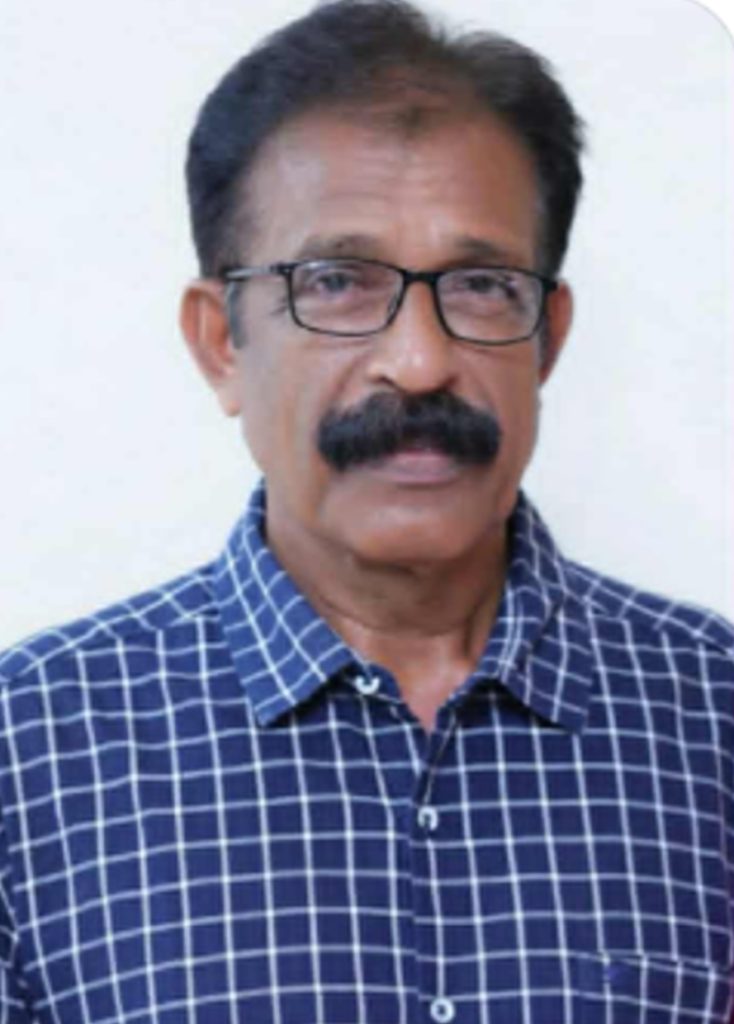Dream The avalanche of broken dreams The choir of new sought promise Surmise me as I go on seeking the world The telepathy of numerous things All at once come undone under my periphery The vision of hydrangeas and little faiths What if all a dreamscape of muted epiphanies? Truly dream then again and again under the canopy For faith of all things come around The sun basks in a miraculous height The trampoline circus of humanity at a standstill Still flickering and sowing the seeds of freedom.
Author Archives: Synchronized Chaos
Synchronized Chaos First of January 2026: What Makes Us Human

First, an announcement: published poet and contributor Tao Yucheng would like to host and judge a poetry contest open to all readers of Synchronized Chaos Magazine.
Synchronized Chaos Poetry Contest
We seek short, powerful, imaginative, and strange poetry. While we welcome all forms of free verse and subject matter, we prefer concise work that makes an impact.
Guidelines: Submit up to five poems per person to taoyucheng921129@proton.me. Each poem should not exceed one page (ideally half a page or less). All styles and themes welcome. Deadline for submissions will be in early March.
Prizes: First Place: $50 Second Place: $10, payable via online transfer. One Honorable Mention. Selected finalists will be published in Synchronized Chaos Magazine.
A second announcement: poet and regular contributor J.J. Campbell has a new book out, to live your dreams.
From the back of the book: J.J. Campbell’s work is an unflinching look into a life spent alone with the bottle and the page readily at hand. It is raw, honest, and uncompromising in every sense of the word. You are keyed into the fact that this is a writer who doesn’t sugarcoat a single line to ever soften the blow. Campbell’s work is perfect in that sense, and in this newest collection, you are getting a writer at the top of his form.
Now, for our first issue of 2026. This issue explores what makes us who we are, physically and psychologically, as individuals and as communities and nations.

Nicholas Gunther explores what makes him human, where in his body his consciousness might be located. Kassandra Aguilera also speculates about her consciousness, considering what makes her feel alive.
Xudoyberdiyeva Mohiniso explores some Eastern and Western philosophical conceptions of what it means to live a conscious human life. Morley Cacoethes’ haikus also explore where and how we find inner wisdom and knowledge. Nilufar Mo’ydinova outlines themes of free will and the search for truth through experience in Goethe’s Faust.
Brian Michael Barbeito crafts a lyrical winter meditation on a person’s holding onto nature and his identity in an alienating new world. Satimboyeva Risolat echoes the importance of maintaining one’s personal values. Mahbub Alam urges people to draw on the wisdom they possess to make the world more just and healthier. Türkan Ergör considers the unpredictable nature of our lives and the need to choose kindness. Zeki Celic reminds us to make the most of the limited time we each have on earth as Stephen Jarrell Williams depicts characters choosing freedom, peace, and love.
Aliyeva Aziza Utkirovna points to the eyes as a place where humans reveal their inner feelings. Nurbek Norchayev’s evocative piece celebrates the power of poetry to convey emotion and sensibility. Aliyeva Zulaykho highlights the role of breath in vocal expression while reading texts.
Chloe Schoenfeld delves into Walter Gramatte’s painting of German artist, art historian, and social activist Rosa Schapire. She wonders how much of the craft of creating a likeness is about the subject and how much is about the associations the artist draws on to help them imagine and understand the person.

Shomurodova Dilafro’z Bahodir qizi explores approaches to Uzbek linguistics that focus more on the people creating texts rather than merely on the texts as isolated objects. Fayziyeva Hafiza Alisher qizi also looks at human life and culture’s influence upon languages.
J.K. Durick reflects on the seasons of life where we are observers, contemplating those around us or what has happened. Taylor Dibbert‘s poetic speaker considers his own role in the dissolution of his marriage. Bill Tope’s short story depicts family pulled apart, then back together, then apart again.
Dr. Jernail Singh urges parents to let their young adult children learn and work for their own dreams in life. Also, he reminds us to consider the legacies we leave behind for the rest of the world once we become successful enough to care for ourselves and our families. Tolqinova Marifatoi Shavkatjon qizi outlines research into approaches to social and vocational training for young adults.
Lan Qyqalla recollects his romance with his late wife as Adalat Eroglu versifies about a tender romance and Özcan İşler urges his love to remember him. Nasser Alshaikh Ahmed Arabia’s poetic mind wanders through the jasmine-scented depths and alleyways of love. Ramona Yolanda-Montiel considers an old and warm poncho as a sign of her family’s love. J.J. Campbell writes his way through another lonely, disillusioned holiday, wishing he had love and a close family.
Aleksandra Soltysiak wonders at gentle miracles at Christmas, within nature and within families. Gabriel Bates reflects on the ways he distracts and enjoys himself during holiday celebrations. S. Afrose sings of the joys of the Christmas season. Til Kumari Sharma highlights the beauty and value of the Christian faith at Christmas as Maja Milojkovic expresses gratitude to the archangel Michael. Kalipada Ghosh celebrates life, faith, love, and joy at the holiday season. Sardar Makhmudova’s short story shares how a little girl’s brave adventure lets her discover the meaning of the season, sharing love with others. Dr. Prasanna Kumar Dalai goes into poetic rapture about romantic love, world peace, and personal stillness.

Ahmed Miqdad laments the cold winter endured by Palestinian refugees in a call for global peace and justice. Pat Doyne reflects on the United States’ gun violence epidemic and the lack of progress to tackle it. Also, she speaks to the political chaos in America and its negative effects on consumer prices. Giulia Mozzati Zacco mourns the deaths of children in school shootings through the ancient form of the ghazal. Ziyoda Muradilova reflects on cultural pressures that social media has placed on the craft of journalism, to be fast, interactive, and appealing to readers, and how that poses challenges to the task of delivering truth.
Eva Petropoulou Lianou reminds us that true freedom is a society where people can live safely together, not merely the chance to serve ourselves at others’ expense. Dr. Jernail Singh reminds us that what goes around, comes around, both in terms of the legal system and the religious concept of karma. Duane Vorhees points out that concepts such as justice and poetry and perception should not remain purely abstract but carry practical meanings in the real world.
Abdulrazaq Godwin Omeiza considers how formal education taught him the facts of history, but poetry showed him how to survive it. Ruqaya Mehran, interviewed by poet Eva Petropoulou Lianou, discusses her work as a museum guide, influencer, and historian of ancient Egypt. Dylan Lloyd speaks to the emerging, burgeoning magic of creativity. Taro Hokkyo’s short story illustrates the power of self-belief in overcoming oppression and obstacles. Zaxina Tohirova highlights the lessons we can learn from failure and perseverance. Aziza Xasamova urges us through piercing prose not to give up, whatever happens in our lives.
Ahmed Farooq Baidoon revels in togetherness and merriment at the New Year. Kujtim Hajdari expresses high hopes and dreams for the New Year as Imran Khan moves forward into 2026 with optimism and Jacques Fleury tosses in his New Year wishes for all of our readers. Bruce Roberts contributes a splash of whimsy in his Wacky New Year poem. Valentina Yordanova’s poetry, translated by Yoana Konstantinova, reflects on the joy of Christmas and the self-reflection encouraged in the New Year as Dr. Ratan Bhattacharjee marches forth into 2026 with hope and strength. JoyAnne O’Donnell renews her hopes and dreams as time marches forward. Argentinian poet Graciela Noemi Villaverde takes joy in her December 21st birthday, the summer solstice where she lives, and Fernando Jose Martinez Alderete reflects on nature’s rest and preparation for regrowth during winter.

Elza Hansen celebrates the maternal and paternal love at the heart of the Christmas holiday. Abu Rayhan Beruni connects the importance of strong families to a strong nation.
Dildora Khojyozova highlights the cultural renaissance of the nation of Uzbekistan as Diyorbek Elmirzayev looks at Uzbekistan’s increasing government debt as an outgrowth of economic growth and investments in modernization. Lolaxon Sodiqxonova highlights the importance of gender equality and initiatives to empower Uzbek women in economics and education. Dilshoda Nodir qizi Nurboboyeva presents strategies for educating and raising children without gender stereotypes. Priyanka Neogi urges women around the world to move forward with self-respect, creativity, and independence. Ashraf Al-Mismar provides a literary analysis of gender, identity, and migration in his novel Soul Shards.
Communication is integral to intercultural understanding and migration. Shaxriniso Savranboyeva outlines various approaches to translating idioms across languages and cultures. Saminjon Khakimov points to how language instructors can harness the phenomenon of code-switching, reverting to one’s native tongue, in the classroom. Abdurashidova Sabina Eldarovna highlights teen code-switching, from normal language to chat-speak and slang. Eshpo’latova Xilola highlights the role of audiovisual teaching aids in enhancing students’ foreign language acquisition. Ruziyeva Sitora outlines why and how English is still considered a global language as Ubaydullayeva Saodat discusses the role of English in international travel.
Abdullayeva Feruza suggests visual activities that help accentuate young children’s learning. Yusupov Otajon Ulug’bek ogli outlines various creative approaches to teaching and learning foreign languages. Gulsevar Amirqulova encourages teachers to practice and develop their own creativity as part of professional development. Jo’ranazova Dilobar Dilmurod qizi highlights different ways to teach young children their mother tongue. Nasulloyeva Feruzabonu expounds on the value of science and technology education for society in ways that go above and beyond the practical. Dr. Jernail Singh Anand urges society and our educational system to teach wisdom and the humanities rather than simply focusing on speeding up students’ financial success. Bahora Akmalova considers approaches to teaching preschool children social skills in a classroom setting. Rupa Rao interviews writing mentor Balachandran Nair about his work with emerging authors.
Eva Petropoulou Lianou interviews Dr. Reda Abdel Rahim, inspector of Egyptian antiquities at the Ministry of Tourism and Antiquities, about his work with artifacts of his nation’s past. Jeffrey Spahr-Summers’ digitally altered photographs glimpse a more recent past, giving homes and street scenes a hazy, nostalgic feel.

Sayani Mukherjee’s imagistic work explores nature, love, loss, and the concept of home. Natasha Leung draws on oceans and canoes as a metaphor for a couple who are separated all too often. Eleanor Hazel Hill reflects on physical mementos of summer fun. Yusufjonova O’gilxon revels in the chill pleasantries of winter. Soumen Roy looks to a river metaphor to express consistent flow, purpose, humility and resilience. Dr. Byeong-Cheol Kang evokes the resoluteness and strength of an eagle. Kujtim Hajdari highlights ecological themes in his review of Eva Petropoulou’s poetry. Axmadqulova Sapuraxon shares ideas for educating preschool children about the environment. A group of youth in China submits various short poems inspired by natural scenes. Alan Catlin patters out imagistic pieces inspired by various Japanese words for rain as O’rinboyeva Zarina speculates on life on a planet where rain is a rarity. Robert Beckvall reflects on his life’s winding path and how it deposited him on the lush big island of Hawaii. Mesfakus Salahin looks to the longer-lasting natural world for absolution from his complex memories. Riley Winters laments human exploitation of animals and the wilderness.
Mykyta Ryzhykh evokes the inextricable natures of life and death. Alyssa Trivett graphically renders the aftermath of a car accident. Nilufar Yoldoshova outlines similarities and differences between Uzbek and Korean funeral customs. Tea Russo’s work dramatizes the soul-killing effects of grief, loneliness, and shame. Gabriel Kang’s work exposes exploitation disguised as progress and love. Robin Beernaert outlines the psychological impact of a griever’s journey through poetry and prose.
Jessica Vanderwall composes an emotionally complex love letter to herself. Daniela Chourio-Soto reflects on the power of dreams to express and warn us about feelings in our waking lives. Joshua Obirija paints a lower-case portrait of the grief and lostness driving his writing.
Adrina Esparas-Hope crafts a graphic image of visceral love that could be a metaphor for creative pursuits. Brian Barbeito lets go of the need to understand everything before he can experience beauty and mystery. Texas Fontanella’s work revels in color and improvisation, reminiscent of jazz and electronica. Mark Young artistically alters geographical maps of checkerboards and Australian regions. Grant Guy intentionally erases parts of painted and typed texts as an artistic experiment. Zamira Moldiyeva Bahodirovna encourages readers and students to take up a refreshing and creative hobby. Federico Wardal explores the career and casting decisions of artists’ manager Adriano Aragozzini.
More practical fields can be creative as well. Shahlo Rustamova explores the role of discrete mathematics, particularly combinatorics, in understanding biological structures. Farangiz Musurmonova urges Uzbek accounting frameworks to match those of international professional standards. Medical student O’roqova Nargiza outlines the importance of salivary glands in the human body. Normurodova Salina Saitkulovna discusses how the medical field prepares for pandemics. Ahmedova Dilorom Mahmudovna highlights the progress of medical therapies for cancers caused by human papillomavirus.
We hope that this issue will inspire your creativity!
Rupa Rao interviews Balachandran Nair on his youth poetry project
THE BALAKAVI VISIONARY: AN INTERVIEW WITH MR. BALACHANDRAN NAIR C.S.
BY RUPA RAO


Introduction
Some individuals quietly reshape the world around them, not through grand speeches or positions of power, but through persistent acts of love, conviction, and service. Mr. Balachandran Nair C.S. — poet, mentor, retired CRPF officer, and the driving force behind the BALAKAVI School Level New Poets Initiative — is one such figure.
From a childhood shaped by hardship to a life dedicated to nurturing young voices across India and beyond, his journey is a testament to resilience, creativity, and unwavering belief in the transformative power of literature. This interview captures his story, his mission, and the extraordinary movement he has built — one child, one poem, one dawn at a time.
INTERVIEW
Q1. What inspires you to focus your energies on encouraging children across states and countries to write and recite poetry?
BN: No one knows, nor has anyone recorded, who first stood facing which direction and witnessed the beautiful dawn. Yet people still gather on hilltops and seashores to watch the sunrise. I am not the sun, a hill, or the sea, but I am still able to help literary enthusiasts witness the rising of schoolchildren as new poets—reciting poems they have written for the first time in their lives. Appearing in colourful school uniforms, sounding like chirping birds. I simply capture a small bit of their talent, cupping my palms around it like a firefly, revealing it when you open your eyes in the early morning. The happiness on children’s faces when you look at them in awe keeps me going, inspiring me to collect another firefly for your next dawn.
Q2. When and how did you come up with this concept?
BN: The 14th of November, the birthday of India’s first Prime Minister, Pandit Jawaharlal Nehru, is celebrated as Children’s Day. I received an invitation to speak to the students of Government High School, Njekkad (Kerala) on that day in 2021. From childhood, I always wanted to be different. So I made a request to the school authorities: I would collect and send poems authored by a few living poets, and the students would recite them during the celebration. In return, I promised to gift each student a poetry book. They agreed, and I collected poems and books from my Facebook friends and forwarded them to the school. The programme was a grand success—many children reciting poems by living, established poets, and those poets watching online. More than a hundred books were gifted to the students and the school library. It was then that it occurred to me: if a student writes and recites their own poem, it will benefit them in many ways. That was the first seed, and I decided to move forward with the idea.
Q3. When did you step into your creative writing phase, and how did it happen?
BN: I am from Kerala, and my mother tongue is Malayalam. I learned Tamil by reading cinema posters. My last four years of schooling were in Madras. I was obsessed with cinema and watched almost every film released at that time. Cinema articles were the first things I read in newspapers. After joining the Central Reserve Police, I hardly had time to write. But the urge to write film scripts slept deeply within me. When I received promotions and had more time, I finally sat down to write scripts—mostly at night. I wrote two or three and approached several well‑known studios between 1990 and 1992. There were promises, but nothing worked out. Later, I discovered that one of my scripts had been made into a film without credit. I ran out of the theatre crying. The same thing happened again with another script in Malayalam. That film won National and State Awards. Though devastated, I gained confidence that I can write. But I didn’t write again for fifteen years.
Q4. What is your family background?
BN: My father served in the British Indian Military. During World War II, he deserted the camp with a few friends to join the Indian Independence Movement and the INA. After independence, he returned home and became a hardcore Communist. He lost everything fighting court cases but ensured we never starved. None of us could study beyond matriculation. I lost my father in 1999 and my mother in 2004. I am from Attingal, Kerala. I married in 1977 and have two daughters, aged 46 and 44. The elder is a homemaker; the younger is a Headmistress. Both have two children each. My eldest grandchild works in IT; the others are studying.
Q5. Who inspired your love for poetry?
BN: I began using Facebook in 2016. Poet Anushka Sharma, a Punjabi settled in South Africa, was my first Facebook friend. I commented humorously on her poems, and she often said my comments outshone her writing. One day she insisted I write a poem myself. I wrote my first English poem at the age of sixty‑six.
Q6. How did you juggle writing and your career?
BN: In my early days as a soldier, I had no time or space to write. But I had access to a library and read extensively. Later, after promotions, I wrote at night. Writing film scripts was my passion.
Q7. Does anyone in your family follow in your footsteps?
BN: My youngest grandchild, Ashwin B. Nair, now fourteen, writes better than me. He published his first poetry anthology Darling Doodles in 2023 and his second, Dwelling Desires, in 2025. He attended online poetry meets with me and received appreciation from veteran poets. Now in high school, he writes during vacations.
Q8. What role does your wife play in your mission?
BN: My wife, Maheswari Amma, is a devoted homemaker. She constantly worries about my health, which suffers because I skip meals, drink little water, and hold my urine during school visits. I have undergone multiple renal stone surgeries and still undergo physiotherapy for a stiff neck caused by mobile‑phone use during the 2022 drive. As a pensioner, I spend much of my pension on travel and project expenses. She endures my endless phone calls and irregular routines without complaint. Her worries are justified… but I am not obedient. I have work to do—for the children. My dream is to give her one day free from my painful aaahhhs and woooohs.
Q9. Who supported you when you began, and who supports you now?
BN: The HaVen International literary platform, founded in 1999, was my first base. I began introducing schoolchildren through it on 1 January 2022. I contacted hundreds of poets worldwide and collected their biodata and simple poems for children to recite. The idea clicked. The 2022 programme ran for 365 days and created world records for:
· 407 New Poets introduced
· 357 living poets featured
· 87 countries involved
Certificates, prizes, and an annual function followed. After a break due to health issues, I revived the project in 2025, expanding it to include differently abled children. With HaVen inactive, I partnered with the International Academy of Ethics (IAE), led by Dr. Jernail S. Anand. The 2025 programme is broadcast daily through IAE and 21 global literary platforms.
Q10. Tell me about the children involved.
BN: Every child is a gem. In BALAKAVI, most New Poets are under ten. One school in Bangalore—East West Public School—has produced 92 New Poets, thanks to teacher Grace Sitharaman. As of 24.12.2025, 287 New Poets have been introduced in 152 days. Adding the 2022 drive, the total is 694. If all schools had cooperated, the number would be in the thousands.
Q11. What do you envision next?
BN: I run BALAKAVI single‑handedly. It is a massive daily task. If a global body that values literature, education, and peace recognizes this effort, it would fulfil my mission. Such recognition would inspire literary communities worldwide to think and act differently in a rapidly changing world.
Q12. What do you enjoy reading and writing?
BN: I love detective and fiction novels—Robert Ludlum, Stephen King, Ken Follett, Frederick Forsyth, Alistair MacLean, Wilbur Smith, Irving Wallace. I write Malayalam short stories and English poems, often with unexpected twists.
Q13. Anything more you’d like to add?
BN: I want to bring differently abled children into the limelight. Many parents hide them from society. I want to change that. And I wish I could give my wife a peaceful day… but I know that may remain a dream.
Q14. How did your partnership with IAE begin?
BN: I was introduced to IAE and its Director, Dr. Jernail Singh Anand, by Dr. Molly Joseph. Dr. Anand supported BALAKAVI wholeheartedly. He visited Kerala twice—once to distribute prizes to 100 students, and again with international scholars to meet New Poets. IAE broadcasts the programme daily, followed by 21 global platforms.
Q15. Any influencers or heroes you follow?
BN: My heroes are the children. They are like honey bees—buzzing, gathering nectar, never stinging, always singing. I simply help extract honey from their writings for the world to taste.
Q16. What dreams remain?
BN: I have published seven books—five poetry anthologies, one Malayalam short‑story collection, and one translated anthology. My poems appear in 92 books. One poem was translated into 89 languages. My dream is to continue guiding children to write and publish their own books.
* Bio of Mr. Balachandran Nair C.S.**
Mr. Balachandran Nair C.S. is a retired CRPF officer, poet, mentor, and the visionary behind the BALAKAVI School Level New Poets Initiative. Born in Attingal, Kerala, he overcame early hardships to become a passionate advocate for children’s literary expression. His work has introduced hundreds of young poets to the world, bridging cultures across 87 countries. A multilingual writer and translator, he has published seven books and contributed to over ninety anthologies worldwide. His mission remains simple yet profound: to nurture young voices, especially those often overlooked, and to spread literature, peace, and hope through the innocence of children.
Closing Note
Some people plant trees whose shade they will never sit under. Mr. Balachandran Nair plants poets.
Through his unwavering dedication, he has created a movement that transcends borders, languages, and limitations. His work reminds us that the future of literature does not lie in grand institutions, but in the small hands of children holding their first poem.
May his journey continue to inspire generations — and may the dawn he brings to young minds never fade.
Rupa Rao holds an MBA and a Law degree. She serves as an administrator at the Literary Warriors Group and as Chief Coordinator for the International Academy of Ethics. Her writings appear in global poetry anthologies, magazines, and literary platforms. She balances writing with hosting poetry sessions and author chats online. A lover of nature walks and yoga, she continually seeks to nurture her soul. She has completed an eminent author’s biography and has co‑authored, curated, and edited seven poetry anthologies and one prose work. She has also edited a novella and three poetry collections for writer friends.
Essay from Ahmedova Dilorom Mahmudovna

Cervical Cancer in Adolescent Girls (HPV — Human Papillomavirus)
Cervical cancer is one of the most serious and widespread oncological diseases affecting women worldwide. The primary cause of this disease is the human papillomavirus (HPV), a common virus that is mainly transmitted through sexual contact. While most HPV infections resolve spontaneously, certain high-risk types of the virus can cause abnormal changes in cervical cells, which may eventually develop into cancer if left untreated.
In adolescent girls, HPV infection is often asymptomatic, making early detection difficult. Due to the immaturity of the immune system and lack of awareness, the virus may persist in the body for a long period. Factors such as early initiation of sexual activity, multiple sexual partners, weakened immunity, and insufficient access to preventive healthcare increase the risk of cervical cancer development.
Effective prevention strategies play a crucial role in reducing the incidence of cervical cancer. Vaccination against HPV at an early age is considered the most reliable method of prevention. In addition, promoting a healthy lifestyle, providing sexual health education, and encouraging regular gynecological examinations are essential measures for early diagnosis. Timely detection of precancerous changes significantly improves treatment outcomes and reduces mortality rates.
Ahmedova Dilorom Mahmudovna is a leading lecturer in Pediatrics at the Abu Ali ibn Sina Public Health Technical School in Yangiyer.
Essay from Fayziyeva Hafiza Alisher qizi

The Human Factor in the Linguistic Picture of the World
Abstract:
This article discusses anthropocentric linguistics, its emergence, the main directions of this branch of linguistics, and the relationship between ideas expressed in language and the human factor.
Key words: anthropocentric linguistics, language, information, cultural code.
From the moment a human being is born and grows, almost all of their needs in life are expressed through language. By speaking, a person not only conveys information to others but also assimilates certain messages from them. All these processes are carried out through language, which serves as a means of communication. Thus, a human being is a user of language. However, interpreting the issue only in this way would be incorrect. Anthropocentric linguistics, which emerged in the nineteenth century, put forward exactly this principle. According to it, a human being not only uses language but also stands at its center, creates it, and expresses their emotional state and certain information through it. Anthropocentric linguistics embraces this aspect as a central concept. Indeed, a person can communicate almost every experience related to themselves and their inner world to society through language.
Before discussing the world and its linguistic picture, let us first answer the question of what language itself is. Language is understood as a set of units that are previously known to all members of a particular society, prepared for use, common and obligatory for everyone, serving to express thought and other purposes, as well as the laws governing the combination of these units. Ferdinand de Saussure defines language as “a system of linguistic signs that exists in the minds of the members of a society.” Roman Jakobson, in turn, describes language as “a code in which units are arranged in a certain system.” Indeed, as noted above, each element of the language system is prepared in advance for human speech.
Y. Stepanov expresses the following view on the concept of language: “Language is not only a system of signs but also a bearer of cultural meaning. Language is closely connected with culture; therefore, language is a cultural code.” The values formed over centuries by each nation and the elements associated with them are expressed in language. Values that reflect the identity of a nation introduce it to the entire world. For example, the image of the Uzbek people is embodied in the eyes of the world through national clothes such as adras and atlas, historical monuments, handicraft items, and national knives decorated with traditional patterns.
A code is a set of signs that is understandable to a particular group, consists of a specific system, and obeys certain rules. Therefore, since language is understandable to a nation and reflects its identity, it can also be perceived as a system of signs, that is, a code. The linguistic picture of the world refers to a set of characteristics unique to each nation that express its identity. Every people and every nation is unique and unrepeatable. Their languages are also diverse. Traditions and values naturally differ from one another as well. Undoubtedly, these elements related to a people find their expression in language.
Language is a means through which the inner world of a person is expressed in existence. Studying the language of a particular nation opens the way to studying that nation itself—its history, culture, and other elements closely connected with national identity. Even concepts related to time and temporality can be expressed in language. People’s culture of communication with one another, affectionate expressions toward children, attitudes toward animals, the plant world, and nature in general, as well as religious values and beliefs—all of these are reflected in language. Therefore, the linguistic picture of the world may differ among nations.
For example, in the Islamic world, there are halal foods permitted for consumption and haram foods that are forbidden. It is well known that a ram is considered a halal animal. At the same time, the name Qo‘chqor exists among the Uzbek people. This can be an example of an anthroponym (personal name) formed on the basis of religious concepts. This, in turn, illustrates the reflection of national mentality in language.
Let us consider another example: the bear is an animal commonly found in forests and mountainous regions. For instance, it is widespread in Russia. Due to the climate and nature familiar to them, this animal has, over the years, become one of the anthroponyms among the Russian people. This exemplifies the reflection of nature in language. Likewise, the Uzbek people have historically been a nation of craftsmen. They were mainly engaged in agriculture, horticulture, and handicrafts. As a result, this has been reflected in language, and names such as Teshavoy and Boltavoy have appeared among Uzbek anthroponyms.
Moreover, the Uzbek people have traditionally been child-loving, hospitable, and attentive to bonds of kindness and compassion. Naturally, this is also expressed in language. There are numerous proverbs, instructive stories, and fairy tales related to this in the Uzbek language. For example:
“A guest enters through the door, but their sustenance enters through the crack.”
In addition, words such as “mother,” “life,” and “homeland” in the Uzbek language do not convey the same lexical meaning in other languages. For instance, in Uzbek, ona (mother) is not merely a person who gives birth to a child, but also a symbol of affection and compassion. Since the mother is considered a sacred figure among our people, poems, epics, stories, and novellas glorifying her have been created. This concept is even mentioned in hadiths.
Let us take the concept of homeland as another example. For the Uzbek nation, homeland is the place where one is born and raised, where one’s umbilical cord blood was shed, where a mother’s lullaby was heard, where ancestors lived, where time was spent with loved ones, and where the joys of childhood were shared with friends. In the Uzbek language, there are many poems, epics, and proverbs related to the lexeme Vatan (Homeland), such as:
“If your homeland is peaceful, you are peaceful.”
“If your native land is safe, your face will not pale.”
“If you have a homeland, you have wealth.”
This word is expressed differently in different languages and conveys different meanings depending on the mentality of the people. Each language has its own subtle nuances of meaning. For example, in English it can be expressed by words such as homeland, country, or motherland. However, these words lack the emotional coloring inherent in the Uzbek concept of ona yurt (motherland). This is because customs and national feelings differ. Thus, we can understand that the human factor plays an important role in the formation, expression, and active use of every lexeme in speech.
In conclusion, language is the inner world of a human being. It expresses everything in its own way. Peoples living in hot, desert regions may love their sands and warm climate and express this in poems and epics, while those living in predominantly cold climates glorify their specific weather conditions. These elements even turn into similes and metaphors and are widely used in speech. Proverbs, folk songs, sayings, fairy tales, and other remarkable examples of oral folklore frequently contain expressions related to these elements. This is because language is always in motion. It is not merely a means of communication between people, but also a tool that expresses, interprets, and comprehends the model of the world as seen through human perception. Since peoples are different, and religions, languages, and cultures vary, the linguistic picture of the world also differs accordingly.
Fayziyeva Hafiza Alisher qizi was born on August 10, 2002, in Chust district, Namangan region. In 2024, she graduated from the Faculty of Philology of Namangan State University. Currently, she is a second-year master’s student at the Department of Philology of Namangan State Pedagogical Institute, where she is conducting scientific research on the topic “Anthropocentric Linguistics and Its Study.”
Essay from Normurodova Salima Saitkulovna

The Impact of Pandemics on Public Health
Normurodova Salima Saitkulovna
Syrdarya Region, Yangiyer City
Abu Ali Ibn Sina College of Public Health
Abstract
This article analyzes the medical, social, and psychological impacts of pandemics on public health. It examines health-related challenges caused by the widespread transmission of infectious diseases, changes in mental well-being, and the increasing burden on healthcare systems.
Keywords: pandemic, public health, infectious diseases, mental health, prevention.
Introduction
A pandemic is the widespread outbreak of an infectious disease across large regions, including multiple countries or the entire world. Throughout history, pandemics such as plague, influenza, tuberculosis, and COVID-19 have significantly affected all aspects of social life, particularly public health. In the modern era, pandemics are considered not only a medical issue but also a major social challenge.
Main Part
Pandemics primarily affect public health through physical illness. The rapid spread of infectious diseases increases morbidity and mortality rates among the population. Elderly individuals, children, and people with chronic illnesses are especially vulnerable and belong to high-risk groups.
Another important aspect is the impact of pandemics on mental health. Quarantine measures, social isolation, fear, and uncertainty contribute to increased stress, anxiety, and depression. These psychological consequences highlight the growing need for mental health support within society.
During pandemics, healthcare systems face severe challenges. Hospitals experience shortages of beds, medical staff are exposed to excessive workloads, and there may be limited access to medicines and medical equipment. As a result, the stability of healthcare systems is put at risk. Therefore, prevention and early diagnosis play a crucial role in protecting public health.
Pandemics also emphasize the importance of improving public health literacy. Adherence to hygiene rules, vaccination, and maintaining a healthy lifestyle are key factors in reducing the negative consequences of pandemics.
Conclusion
In conclusion, pandemics have a serious and multifaceted impact on public health. To minimize their negative effects, it is essential to strengthen healthcare systems, expand preventive measures, and increase attention to mental health. Only through a comprehensive approach can the consequences of pandemics be effectively managed.
References
World Health Organization (WHO) materials.
Fundamentals of Public Health. — Tashkent, 2021.
Educational materials on infectious diseases and their prevention.
Poetry from Robert Beckvall

That Hawaiian Staycation
The good ‘ol U.S. Army brought me here
The Chinese girls and various aloha purveyors bade me stay
So here sits I, on a balcony green with plants, envy and Green Edition Red Bull
I can see the pink Royal Hawaiian where my sister stayed, just across from where she rocked like Gin Blossoms and counted koi
Now I am a more mundane working-class guy, portrayed as teacher and coach
My staycation has stretched out to 29 years on this island
I’ve taken trips to Arizona, China, Georgia, Seattle, and California, but always leave my heart (sacrificed?), on Oahu and sometimes hide it in our small Chinatown.
Been to Maui, Kauai, and Hawaii, but my heart and soul are on Oahu.
Robert Allen Beckvall 12-25
